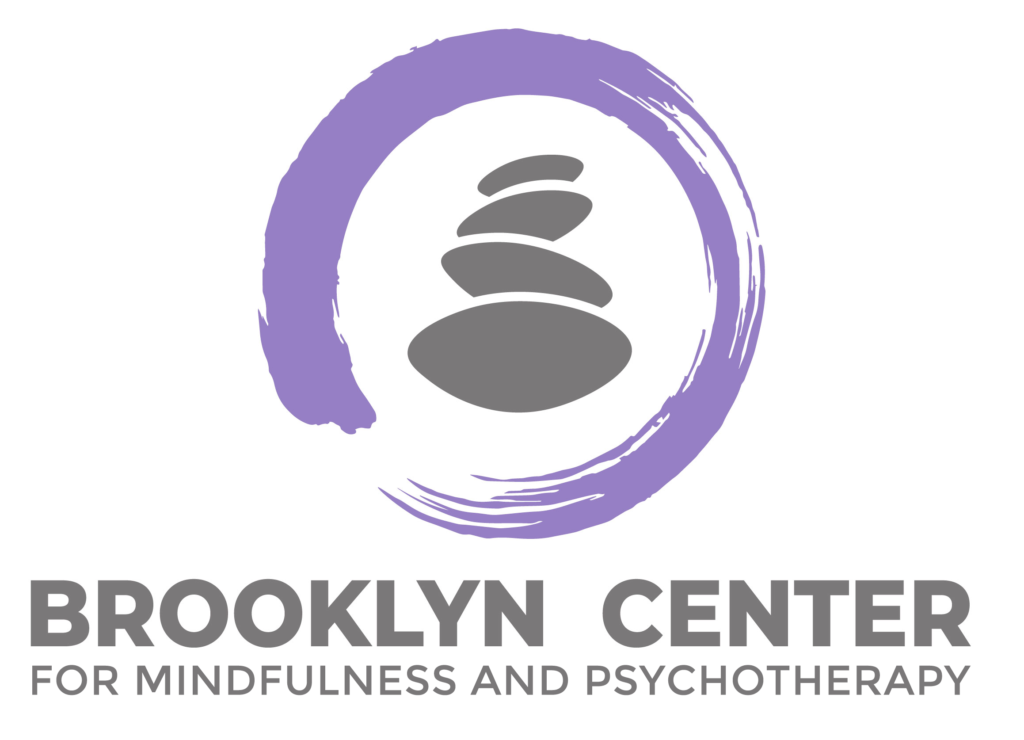Welcome to our blog, where we delve into the transformative power of Mindfulness in therapy, specifically focusing on the profound benefits it brings to individuals in the bustling city of New York. In this article, we explore the role of Mindfulness in cultivating present-moment awareness and its potential to foster greater self-awareness, reduce stress, and enhance overall well-being. Join us on this journey as we uncover how mindfulness practices can help New Yorkers find balance and tranquility amidst the chaos of everyday life.
Role of Mindfulness in Therapy
Mindfulness has become an increasingly popular approach in therapy in New York and worldwide. This practice emphasizes being present at the moment and non-judgmentally observing one’s thoughts, emotions, and physical sensations. By becoming more aware of one’s internal experiences, individuals can develop greater insight into their automatic patterns of thinking and behavior, which can help them to break free from negative cycles and make healthier choices.
In therapy, mindfulness techniques may be incorporated into a variety of approaches, such as cognitive-behavioral therapy (CBT), dialectical behavior therapy (DBT), or acceptance and commitment therapy (ACT). Mindfulness-based interventions are effective in reducing symptoms of anxiety and depression, improving emotional regulation, increasing self-compassion, and enhancing overall well-being. As such, Mindfulness is a valuable tool for anyone seeking to improve their mental health and cultivate greater awareness and self-understanding.

Understanding Mindfulness
Mindfulness is a practice that has gained popularity in recent years, particularly in busy cities like New York. At its core, Mindfulness is about being present and fully engaged at the moment without judgment or distraction. In a city as fast-paced as New York, it can be easy to get caught up in the hustle and bustle of daily life, which can lead to stress and anxiety.
By practicing Mindfulness, individuals can learn to cultivate greater awareness and calmness.
There are many different ways to practice Mindfulness, including meditation, yoga, and simply taking a few deep breaths throughout the day. Some people find it helpful to set aside dedicated time each day for mindfulness exercises, while others integrate these practices into their daily routines. Whatever approach you choose, the key is to be consistent and patient with yourself as you develop your mindfulness skills.
Understanding Mindfulness can be a valuable tool for anyone looking to reduce stress and improve their overall well-being in the bustling city of New York.
Techniques for Mindfulness-Based Therapy
Mindfulness-based therapy has recently gained popularity as a practical approach to promoting mental wellbeing and reducing stress. If you’re looking for techniques or resources related to mindfulness-based treatment in New York, here are some options you can explore:
- Mindfulness-Based Stress Reduction (MBSR): It incorporates mindfulness techniques, including meditation, body awareness, and gentle movement, to cultivate present-moment awareness. In New York, you can search for MBSR programs offered by healthcare institutions, mindfulness centers, or individual practitioners.
- Mindfulness-Based Cognitive Therapy (MBCT): MBCT combines elements of cognitive therapy with mindfulness practices. It benefits individuals with depression, anxiety, or recurrent negative thinking patterns. Look for therapists or mental health clinics in New York that offer MBCT programs or incorporate MBCT techniques into their practice.
- Mindfulness-Based Relapse Prevention (MBRP): MBRP is an approach that integrates mindfulness practices with relapse prevention strategies, primarily designed for individuals recovering from addictive behaviors. If you or someone you know is seeking support in overcoming addiction in New York, consider searching for therapists or treatment centers that offer MBRP programs.
- Mindfulness-Based Cognitive-Behavioral Therapy (MB-CBT): MB-CBT combines cognitive-behavioral therapy (CBT) elements with mindfulness techniques. It helps individuals identify and modify unhelpful thoughts and behaviors while fostering self-compassion and present-moment awareness. Look for therapists trained in MB-CBT or clinics offering this type of therapy in New York.
- Mindfulness-Based Eating Awareness Training (MB-EAT): MB-EAT focuses on developing a healthier relationship with food and eating by cultivating Mindfulness. It addresses emotional eating and body image issues and promotes self-acceptance. To explore this approach in New York, search for therapists or programs specializing in MB-EAT.
- Mindfulness Meditation Classes: Numerous New York meditation centers, yoga studios, and wellness centers offer mindfulness meditation classes. These classes may focus on meditation techniques, including breath awareness, body scan, loving-kindness meditation, and more. Attend a few lessons to learn and practice mindfulness meditation under the guidance of experienced instructors.
How can Mindfulness Help with Mental Health Issues Such as Anxiety and Depression?
Mindfulness is a powerful tool for managing mental health issues such as anxiety and depression. By focusing on the present moment and accepting one’s thoughts and feelings without judgment, Mindfulness can help individuals develop greater self-awareness and emotional regulation. Studies have shown that regular mindfulness practice can lead to decreased symptoms of anxiety and depression, as well as improved overall well-being.
In New York, many resources are available for those interested in incorporating Mindfulness into their mental health care routine. Individuals can find various options to suit their needs, from mindfulness-based therapy to meditation classes. Additionally, many mental health professionals in the city are trained in mindfulness techniques and can offer guidance and support on incorporating these practices into daily life. With its proven benefits and abundant resources, Mindfulness is an excellent option for those seeking to improve their mental health in New York.
Benefits of MBCT for Anxiety and Depression
Mindfulness-Based Cognitive Therapy (MBCT) is effective in reducing symptoms of anxiety and depression in various populations. Here are some of the benefits of MBCT for anxiety and depression in New York:
- Reduction of symptoms: MBCT combines cognitive therapy techniques with mindfulness practices to help individuals better manage their thoughts and emotions. It has been shown to effectively reduce symptoms of anxiety and depression, including rumination, worry, and negative thinking patterns.
- Prevention of relapse: MBCT is particularly effective for individuals who have experienced multiple episodes of depression. It equips individuals with skills to recognize early warning signs and respond effectively, reducing the likelihood of relapse and promoting long-term mental well-being.
- Increased self-awareness: MBCT emphasizes developing mindfulness skills, which involve paying attention to the present moment without judgment. This practice helps individuals become more aware of their thoughts, feelings, and bodily sensations, fostering a greater understanding of their experiences and enhancing emotional regulation.
- Stress reduction: New York is a bustling city known for its fast pace and high-stress levels. MBCT offers practical tools to manage stress, promoting relaxation and resilience in the face of daily challenges. Mindfulness helps individuals cultivate a sense of calm and balance, enabling them to respond more effectively to stressors.
- Improved overall well-being: MBCT not only targets symptoms of anxiety and depression but also promotes overall well-being. Regular practice has been associated with increased positive emotions, improved self-esteem, better interpersonal relationships, and enhanced life satisfaction.
- Flexibility and accessibility: MBCT can be delivered in various formats, including group-based programs, individual therapy, or online platforms. This flexibility makes it accessible to individuals in New York, where options for mental health support may be diverse. Additionally, MBCT can be integrated into ongoing therapy or used as a stand-alone treatment, depending on an individual’s needs.
- Complement to medication: MBCT can be used with medication for anxiety and depression. It provides individuals with additional skills to manage their mental health and reduce reliance on medication alone while respecting healthcare professionals’ recommendations.

Mindfulness Meditation Techniques
Mindfulness meditation techniques have become increasingly popular in New York to manage stress and improve overall well-being. There are several different approaches to mindfulness meditation, but they all involve training the mind to focus on the present moment without judgment or distraction.
One common technique is called breath awareness, which involves focusing on the sensation of breathing in and out. This can be done while sitting or lying down, with eyes closed or open. The idea is to observe the breath without trying to control it, allowing thoughts and sensations to come and go without getting caught up in them.
Another technique is body scan meditation, which systematically relaxes each body part, starting from the toes and moving up to the head. This can be done while lying down or sitting comfortably and helps cultivate a deeper awareness of physical sensations and tension in the body.
A third technique is loving-kindness meditation, which involves cultivating compassion and goodwill towards oneself and others. This practice often involves silently repeating phrases such as “May I be happy” or “May you be free from suffering,” focusing on sending positive wishes into the world. With regular practice, these mindfulness techniques can help individuals develop greater self-awareness, emotional regulation, and overall resilience in the face of stress and adversity.
Conclusion
In conclusion, Mindfulness has become an increasingly popular tool for managing stress and improving overall well-being in therapy. Individuals can cultivate greater self-awareness and emotional regulation by training the mind to focus on the present moment without judgment or distraction. With regular practice of techniques such as breath awareness, body scan meditation, and loving-kindness meditation, individuals can develop greater resilience in the face of stress and adversity. As Mindfulness continues gaining recognition as a valuable therapeutic approach, more individuals are likely to benefit from its transformative effects in their lives. At Brooklyn Mindful in New York, we offer mindfulness-based therapies to help individuals cultivate present-moment awareness and improve their overall well-being. The practice of Mindfulness is instrumental in assisting individuals to live more fulfilling, happy lives. So, if you’re looking for a way to manage stress and cultivate greater awareness of your thoughts and emotions, consider exploring the transformative power of Mindfulness with us at Brooklyn Mindful.






